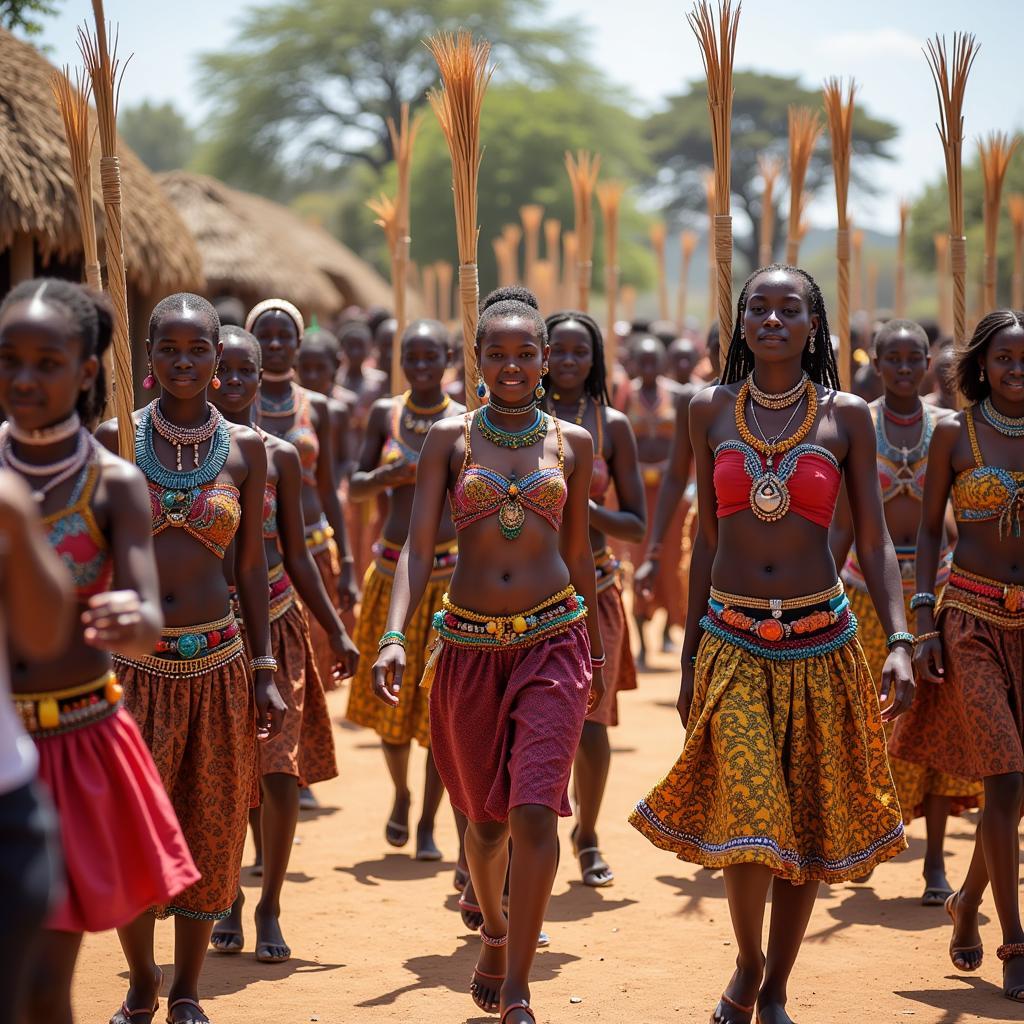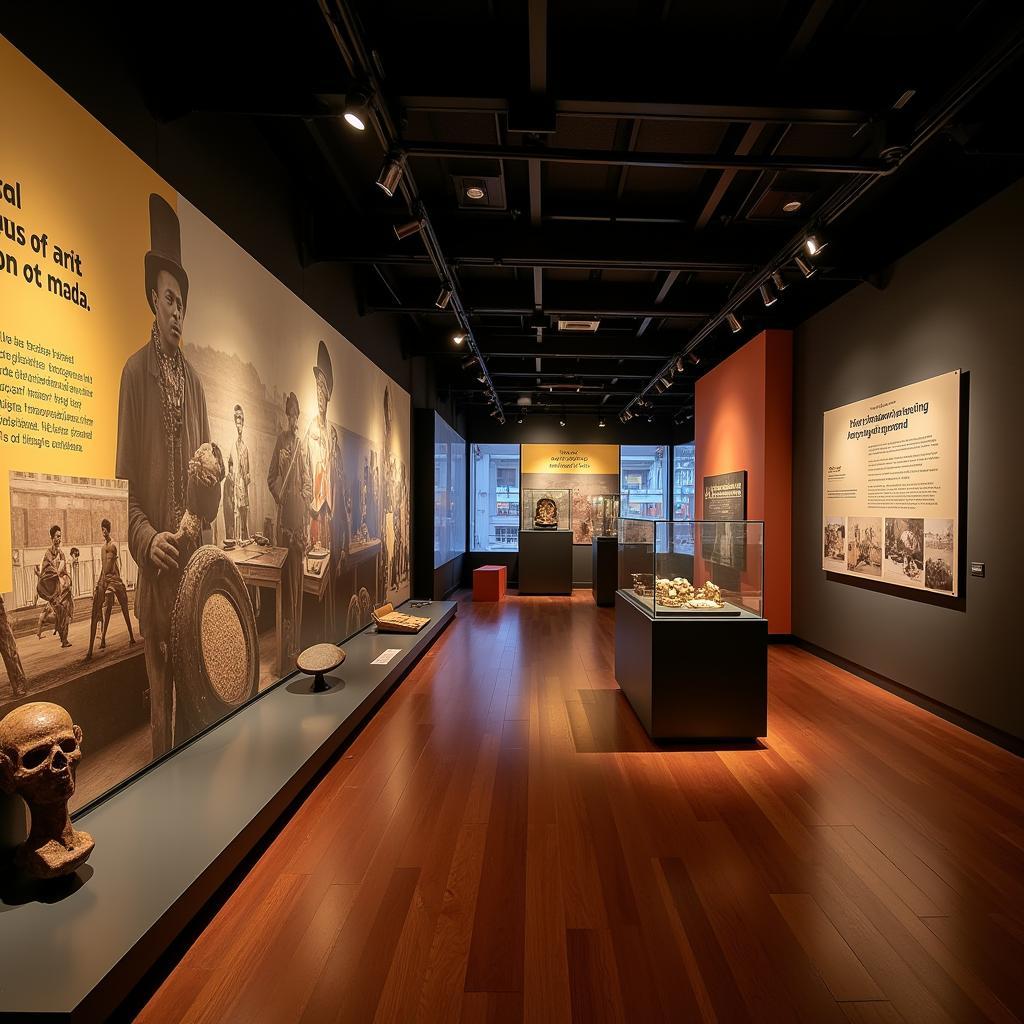African American Women in Defense of Ourselves
African American Women In Defense Of Ourselves: This phrase resonates deeply, echoing centuries of struggle, resilience, and the ongoing fight for equality. From resisting enslavement to challenging systemic racism and sexism, Black women have consistently been at the forefront of movements for social justice, not just for themselves, but for entire communities. This article explores the historical context of this powerful statement, examines its contemporary relevance, and celebrates the strength and courage of African American women.
A Legacy of Resistance: Historical Context of “African American Women in Defense of Ourselves”
The history of African American women is inextricably linked to resistance. From the very beginning, enslaved women fought back against the horrors of the Middle Passage, the brutality of plantation life, and the constant threat of sexual violence. They found ways to preserve their culture, families, and spiritual beliefs, forging a foundation of strength that would carry generations to come. Figures like Sojourner Truth, Harriet Tubman, and Ida B. Wells-Barnett emerged as powerful voices against slavery, advocating for abolition and women’s suffrage. These women understood that their liberation was intertwined with the liberation of all oppressed people.
The Fight for Suffrage and Beyond
The fight for suffrage was another crucial battleground. Despite facing discrimination within the suffrage movement itself, Black women like Mary Church Terrell and Anna Julia Cooper tirelessly campaigned for the right to vote, recognizing its potential to empower their communities. Their work laid the groundwork for the Civil Rights Movement, where women like Rosa Parks and Fannie Lou Hamer again played pivotal roles, challenging segregation and demanding voting rights. These women understood the interconnectedness of race, gender, and class oppression, and they fought for a future where all people would be treated with dignity and respect.
Contemporary Relevance: “African American Women in Defense of Ourselves” in the 21st Century
The phrase “African American women in defense of ourselves” remains powerfully relevant in the 21st century. Black women continue to face systemic racism and sexism, impacting every aspect of their lives, from education and employment to healthcare and the criminal justice system. The rise of the Black Lives Matter movement, spearheaded by Black women activists, has brought renewed attention to the ongoing struggle for racial justice and the disproportionate violence faced by Black communities.
Intersectionality and the Black Feminist Movement
The concept of intersectionality, coined by legal scholar Kimberlé Crenshaw, is crucial to understanding the unique challenges faced by Black women. Intersectionality recognizes that various forms of oppression, such as racism, sexism, and classism, are interconnected and cannot be understood in isolation. The Black feminist movement has long championed this perspective, highlighting the ways in which Black women’s experiences are shaped by the complex interplay of these forces.
What Does “In Defense of Ourselves” Mean Today?
“In defense of ourselves” takes on multiple meanings in the 21st century. It means advocating for policy changes that address systemic inequalities, challenging racist and sexist stereotypes in the media, and creating spaces for Black women to share their stories and build community. It also means prioritizing self-care and mental wellness, recognizing the toll that constant struggle can take. Dr. Anika Noni Rose, a prominent sociologist specializing in Black women’s studies, notes, “Self-preservation and community uplift are not mutually exclusive; they are intertwined aspects of resistance.”
Conclusion: The Power of Collective Action
African American women in defense of ourselves: This is not just a slogan; it is a call to action. It is a testament to the strength, resilience, and unwavering commitment of Black women to fight for justice and equality. From the earliest days of resistance to the ongoing struggles of today, Black women have shown the world the power of collective action and the importance of speaking truth to power. As we move forward, it is essential to amplify their voices, support their leadership, and work together to build a future where all people can thrive.
FAQs
-
What is the significance of the phrase “African American women in defense of ourselves”? It signifies the historical and ongoing struggle of Black women against systemic oppression and their proactive role in advocating for their rights and liberation.
-
How does intersectionality relate to the experiences of African American women? Intersectionality highlights the interconnected nature of various forms of oppression, recognizing that Black women experience racism, sexism, and other forms of discrimination simultaneously.
-
What role did Black women play in the Civil Rights Movement? Black women were central to the Civil Rights Movement, leading boycotts, organizing protests, and demanding voting rights.
-
How can I support African American women in their fight for equality? Educate yourself about the issues they face, amplify their voices, support Black-owned businesses, and advocate for policies that promote racial and gender equality.
african american non profit organizations in los angeles
-
What are some resources for learning more about Black feminism? The Combahee River Collective Statement is a foundational text of Black feminism, and the work of scholars like Angela Davis and bell hooks offers valuable insights.
-
How can self-care be a form of resistance for Black women? Prioritizing mental and physical well-being is crucial for Black women who are constantly navigating systemic oppression. Self-care can be a powerful tool for sustaining activism and building resilience.
-
What are some examples of contemporary activism led by African American women? The Black Lives Matter movement, the fight for reproductive justice, and the push for equitable representation in politics and media are just a few examples.
Need Support?
When you need assistance, please contact us at Phone Number: +255768904061, Email: kaka.mag@gmail.com or visit us at Mbarali DC Mawindi, Kangaga, Tanzania. We have a 24/7 customer support team.



